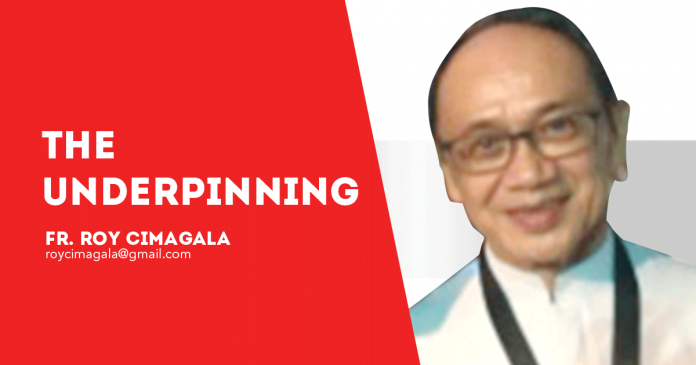
BECAUSE of the way we are, with our intelligence and will that enable us to know, to choose, to feel free, to love, etc, we will always have the possibilities of either rising to the zenith of our humanity, making ourselves no less than “another Christ” as we are meant to be, or plunging south to be the most wretched of all God’s creatures.
This choice is actually presented to us at every moment of our life, in every situation, condition and circumstance of our life. We have to be more aware of this fact and know how to make the proper choice. Of course, we should try our hardest to be the best that we can be.
But let’s always remember that whatever fate we fall into, whether we are a saint or a sinner, God never ceases to love us. Of course, he wants us to be like him, since we have been created in his image and likeness. That is why he is most demanding of us. We are asked to love God with all our heart and might, and love our neighbor the way Christ loves us.
The epitome of this standard of love is, of course, Our Lady who was conceived without sin and remained sinless all throughout her life. She followed everything that she knew about God’s will and ways. She so identified herself with her son that she would be rightly called the Mother of God. (cfr. Lk 8, 21)
But God also knows that we can be bad or that we choose to be bad, doing precisely the opposite of what God wants us to do and to be. No problem. God will not stop loving us. Instead he will do everything to save us. This truth is dramatized in those parables of the lost coin, lost sheep and the prodigal son, (cfr. Lk 15) and actualized in the very passion, death and resurrection of Christ.
As shown by Christ, God’s mercy is always there for us. Christ, for example, readily forgave the woman caught in adultery (cfr. Jn 8, 1-11) and the thief who was crucified with him and who only wanted to be with him in Paradise (cfr. Lk 23, 43). And whenever he performed some healing miracle, Christ was more interested in forgiving the sins of those who benefited from his miracles.
Ultimately, Christ asked forgiveness for those who crucified him, even trying to find excuses for them — “for they know not what they are doing.” (Lk 23, 34) God will do everything to bring us back to him. He predestines no one to hell. If one finds himself in hell, it would not be because of God, but rather because of the person concerned, who chooses in spite of God’s mercy and goodness, to reject God.
We should really try our best to unceasingly grow in our love for God. We actually cannot exaggerate that love, since true love is given without measure. But in case we fall short of that love and, worse, find ourselves alienated from him, let’s never hesitate to go back to him. Let’s humble ourselves and feel convinced that God is ever willing to give us his mercy.
And in our dealings with others, let’s encourage them to be and to do their best even as, like Christ, we should be always merciful when we see their negative side./PN

